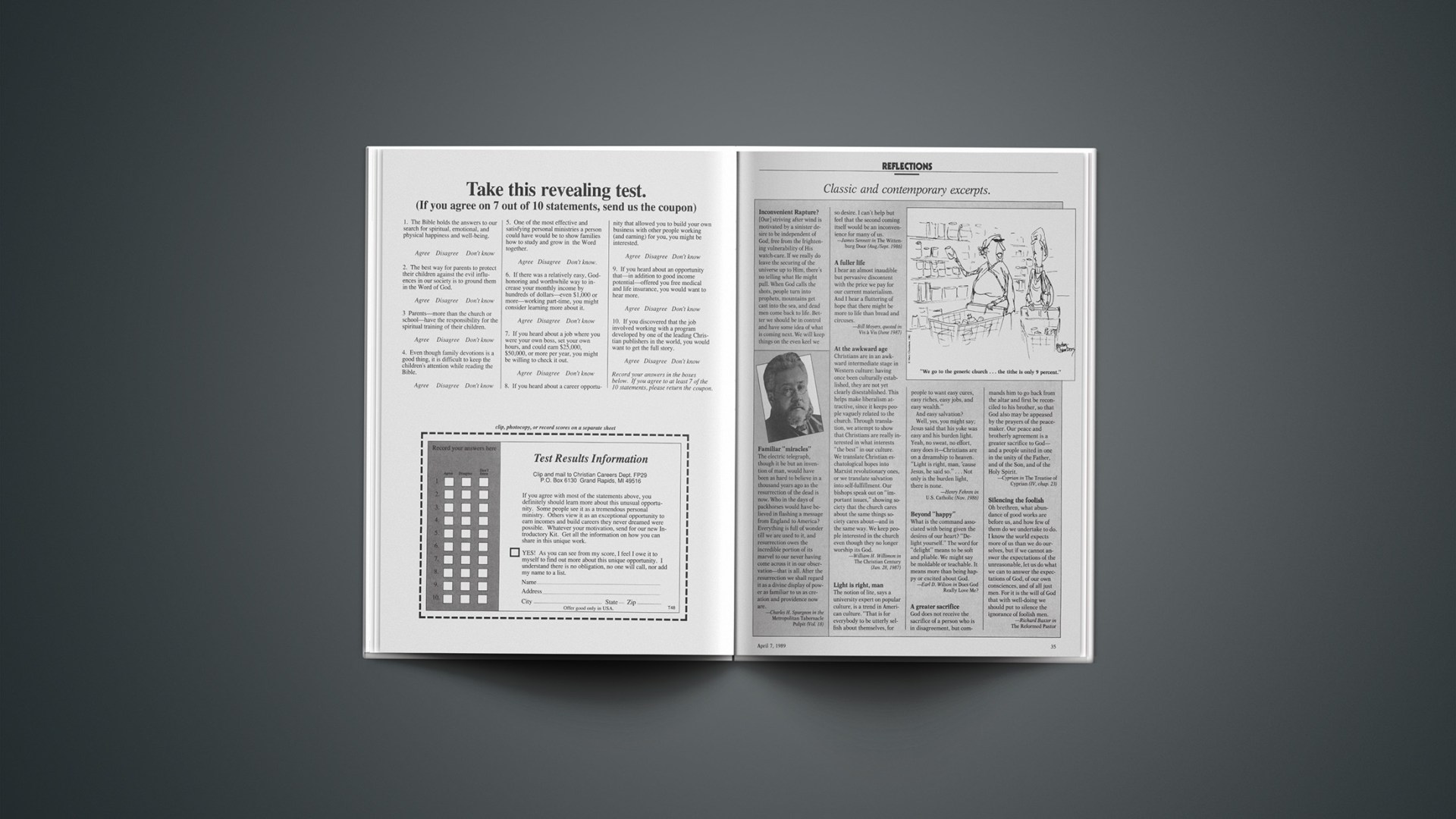At a ground-breaking ceremony last month, a century-old prison in Atlanta became the site of an extraordinary urban renewal project. GlenCastle, known to Atlanta residents as “the old stockade,” was built in 1863 as a combination prison and poorhouse.
Abandoned and dilapidated, GlenCastle was purchased in 1987 by a group of Christians in Atlanta who have established an organization called Family Consultation Services, Inc. (FCS). By 1990 they plan to renovate the prison, redesigning it to offer 67 single and double efficiency apartments for the working poor.
Project manager Renny Scott (see “Back on Track,” adjacent) says the need for affordable housing is urgent in Atlanta, as well as in other urban centers. “In Fulton County [Georgia],” Scott noted, “100 people are evicted every seven days.” He added that nearly half of the women and children seeking help at homeless shelters in Atlanta are people recently evicted from homes.
To accomplish the ambitious renovation project, Scott has recruited help from area contractors and suppliers. Nine general contractors in the city have formed a consortium to share the work load at cost, and 14 electrical contractors plan to donate a total of 2,000 man-hours to the project. All the interior design work, Scott said, is being donated as well.
The project’s estimated price tag is $3.4 million. According to Scott, $2.2 million was contributed prior to the ground breaking.
A sharp drop in the number of afford able homes and apartments over the last decade is considered the main reason more and more people nationwide are living in the streets. Between 1974 and 1983, according to the Joint Center for Housing Studies of Harvard University, the number of apartment units nationwide renting for less than $300 per month declined by nearly one million. In that same period, federal funds for building or rehabilitating low-income housing dropped from $32 billion to $9 billion.
The Tax Reform Act of 1986 multiplied the problem by removing incentives for contractors to build multifamily dwellings. The National Association of Home Builders projects 335,000 multifamily starts in 1989. That is down from 669,000 in 1985. And most of those being built are luxury condominiums that are aimed at affluent, two-earner families.
The GlenCastle conversion, which is going forward without federal assistance, typifies private initiatives to provide low-cost housing. Concern about today’s 3 million homeless, and the projected 18 million homeless by the turn of the century, fuels programs such as Habitat for Humanity, which sets up revolving, interest-free home loans enabling the poor to buy new and remodeled homes.
Scott sees GlenCastle as offering more than just a place to live. Through the services of FCS, people who rent apartments there will have access to job training, new employment opportunities, and nonprofit shops for food and clothing. In addition, Scott says, “We’re going to take the old blacksmith shop inside GlenCastle, where the prisoners made their own chains, and turn it into a chapel.”
He sees the project as a way of authenticating the church’s call to be salt and light in its community. “Salt is at its best when it just disappears,” he explains. “Our role is to be a catalyst, calling forth the compassion of the city to meet the needs of its poor.”
By Beth Spring.
Back on Track
The renovation of GlenCastle is not the first ambitious project Renny Scott has tackled. Scott, a former Episcopal priest, is well known among evangelicals in that denomination as a visionary and motivator. He began his ministry as an assistant rector under Terry Fullam at Saint Paul’s Episcopal Church in Darien, Connecticut.
Scott moved to Fairfax, Virginia, in 1977 to lead a new charismatic congregation, Church of the Apostles. In 1983 he was called to Saint Philip’s Episcopal Church in Charleston, South Carolina. In 1985, he organized a massive “Flight of Mercy” from Charleston to famine-ravaged Ethiopia (CT, July 12, 1985, p. 44). The Flight of Mercy drew together churches, schools, and civic groups eager to help launch a Boeing 747 cargo jet loaded with food and rehydration tablets.
Under Scott’s leadership, the congregation at Saint Philip’s doubled in two years. He told church members the flight to Ethiopia was a first step toward sensitizing them about poverty and caring for their neighbors.
Scott abandoned his pulpit and left the priesthood abruptly in 1986, attracting national media attention and speculation about an unspecified pattern of sin in his life (CT, July 11, 1986, p. 28).
In Atlanta, he and his wife, Margaret, and their four children recently moved to an inner-city neighborhood. They attend Atlanta’s Church of the Apostles, led by a rector who was considered for Scott’s pulpit in Fairfax in 1983. “I don’t consider myself to have left the priesthood,” Scott says. “It’s the same call, but a different vehicle. I feel I can be more effective on the streets than in the pulpit.”










